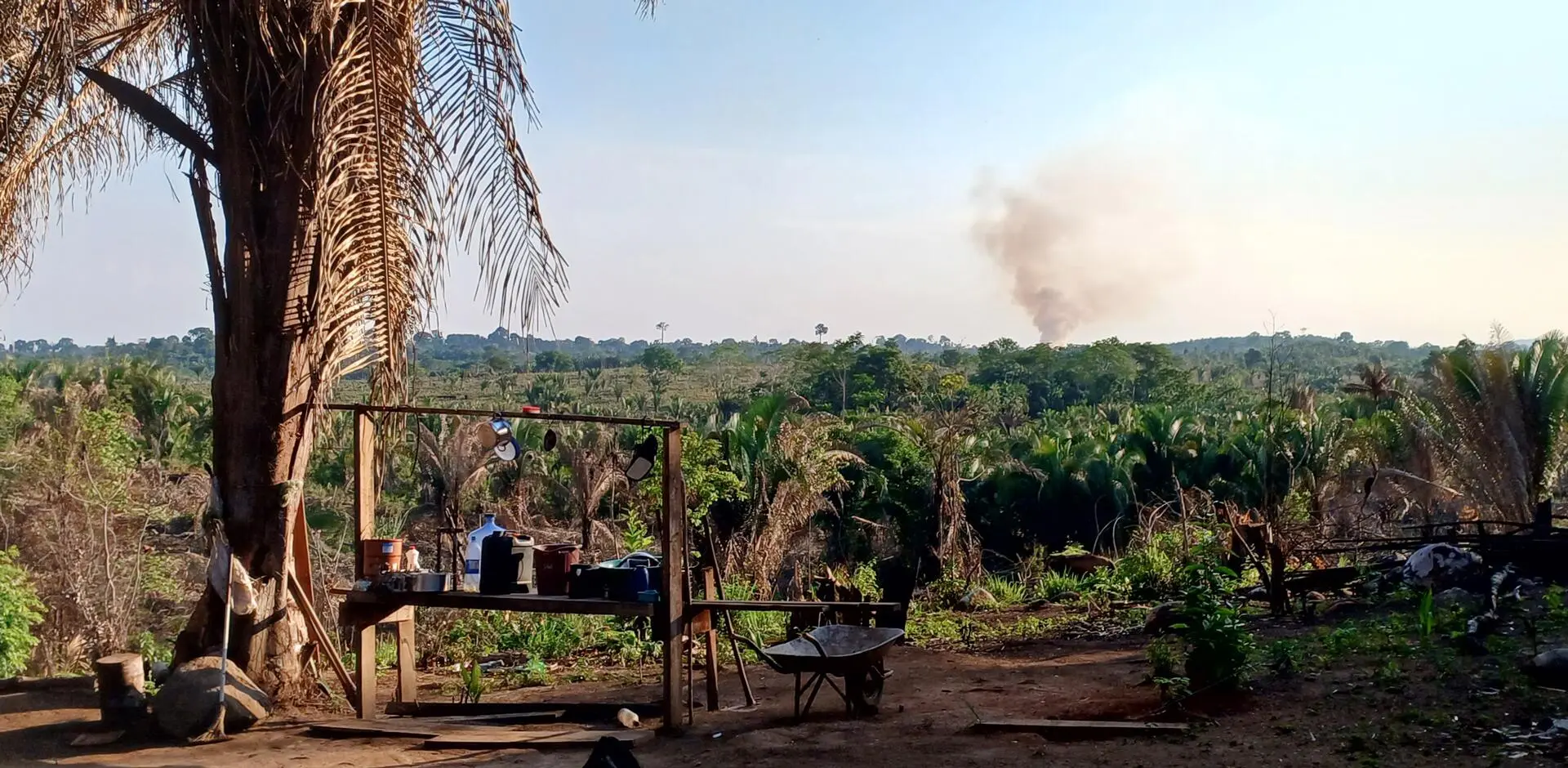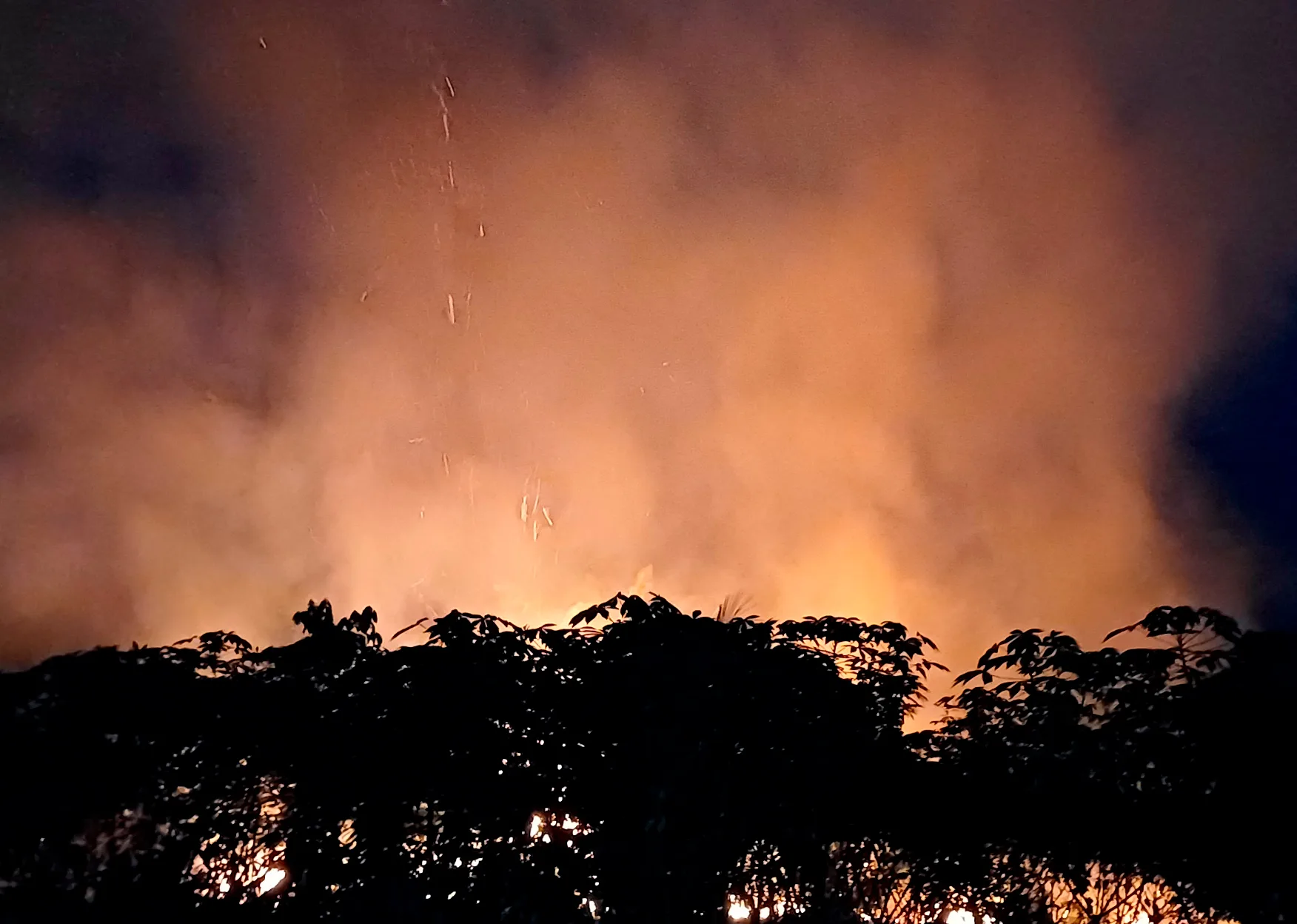I’m 21 years old and took part in the first Mycelium-SUMAÚMA Forest-Journalist Co-Training Program. I was born in the Amazon, in the district of Vitória da Conquista, Gelado River, in the municipality of Novo Repartimento, in the state of Pará. I arrived at the Sister Dorothy Sustainable Development Project in the town of Anapu, Pará, on July 16, 2022, after my family and I had traveled all night from Gelado in search of a better life, of a place where we could plant and harvest. I live in a rural area with my mother, father, three younger sisters, and an older brother. Since August 2024, I’ve been studying agriculture at the Federal Institute of Pará technical school in Castanhal. When I’m in Anapu, I get up early to make my lunch for school. I love to read and, whenever possible, spend hours admiring the sky and rainforest. I dream about changing the world but still don’t know how. This film-poem is my attempt to convey the distress and indignation we feel when we see our very dreams burning up in the Amazon.
Around here, the sky is always gray wherever you cast your eyes. Our lungs are heavy with air that once was clean but now presents a serious risk to us.
Dry pastures, dry riverbeds. And with water drying up in the wells, people cry for help.
They complain over and over that even when they’re indoors, doing nothing, the sun is fierce. They share a bit of their stories: “I remember real well, back in my time, when I was a boy and worked all day, the sun didn’t scald like this.”
I think we’re crazy to dream about becoming big farmers. Razing millions of acres to plant grass while laying waste to a dense forest.
If water is the source of life, why do we destroy what makes water fall? Instead of admiring cattle in a pasture that is so dry it doesn’t have the nutrients to increase their milk, why don’t we admire the standing trees?
We can stand it when the vultures come and eat the cattle killed by the drought, but we can’t stand to see a standing forest.
We’re so mean and ambitious that we’re willing to destroy the little green there is left over on this side.

At the back of a lot in Anapu, behind the laundry bench, the land is prepared for planting while the forest burns in the distance. December 2023
***
The Mycelium-SUMAÚMA Forest-Journalist Co-Training Program began in May 2023. Fourteen young people from the Middle Xingu—four Indigenous youth, three youth from traditional forest communities, one from a Quilombola community, one small-hold farmer, a fisherwoman, an Indigenous health nurse, and young people from urban communities in the city of Altamira—participate in gatherings in the forest and the city. The youth are guided by senior journalists at SUMAÚMA, known as “seed-mentors,” who are in turn guided by the youth, since co-training is an exchange.
In crafting this critical, poetic sketch of the place where she lives, in rural Anapu, Pará state, the forest-journalist Maria Soares worked with the seed-mentors Thiago Leal and Viviane Zandonadi.
Coordinated by Raquel Rosenberg, co-founder of Engajamundo, the teaching method used by Mycelium-SUMAÚMA, deliberately eschews any type of orthodoxy. Conceived by Eliane Brum (likewise responsible for supervision and content) and Jonathan Watts, the program maintains the rigor, responsibility, and accuracy of traditional journalism.
Micélio-SUMAÚMA also includes psychoanalyst Ilana Katz, providing care consulting, and producer Thiago de Sousa Leal. Mônica Abdalla is responsible for managing the Program’s finances, with administrative and financial assistant Marina Borges. Micélio-SUMAÚMA receives funding from the Moore Foundation and the Google News Initiative.
Text, photos, and narration: Maria Soares
Video editing: Maria Soares and Lucas Bambozzi
Seed-mentors: Viviane Zandonadi e Thiago Leal
Photo Editor: Lela Beltrão
Fact-checker: Plínio Lopes
Proofreader (Portuguese): Valquíria Della Pozza
Spanish translation: Meritxell Almarza
English translation: Diane Whitty
Copyediting and finishing: Natália Chagas
Editorial workflow: Viviane Zandonadi
Editor-in-chief: Talita Bedinelli
Editorial director: Eliane Brum







